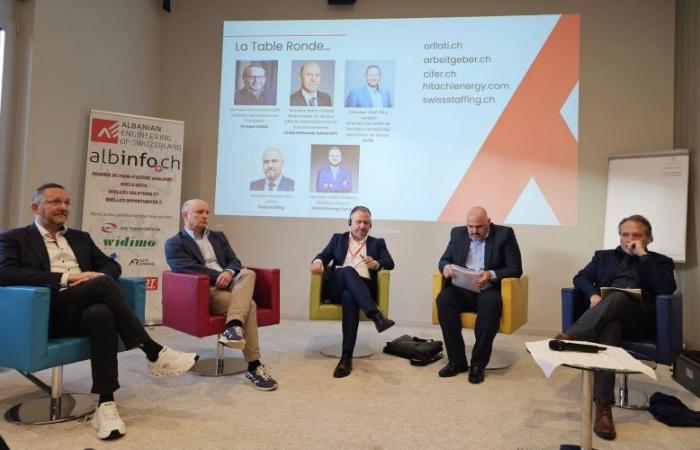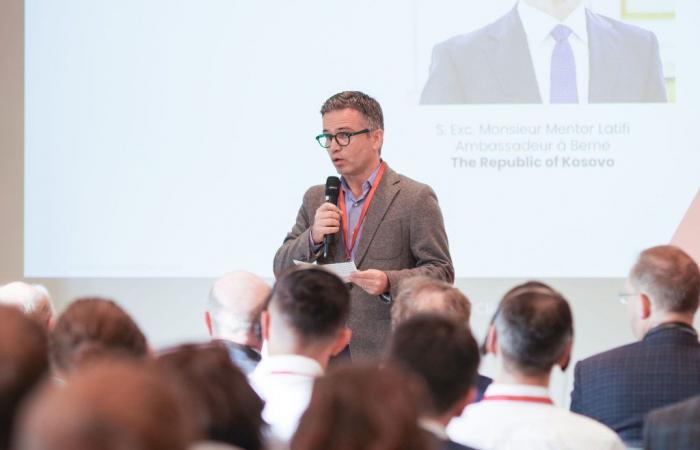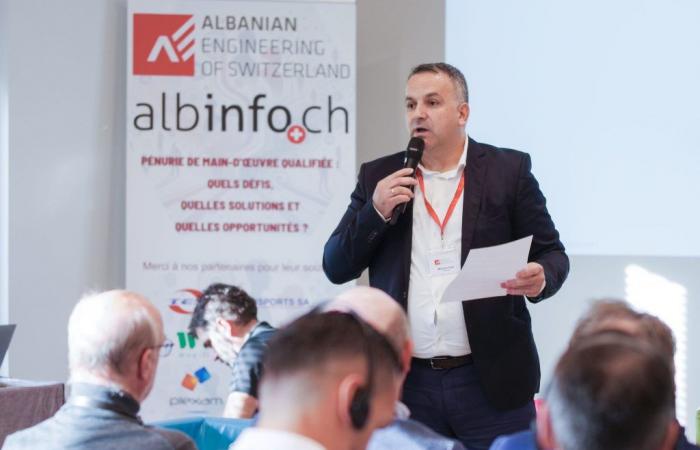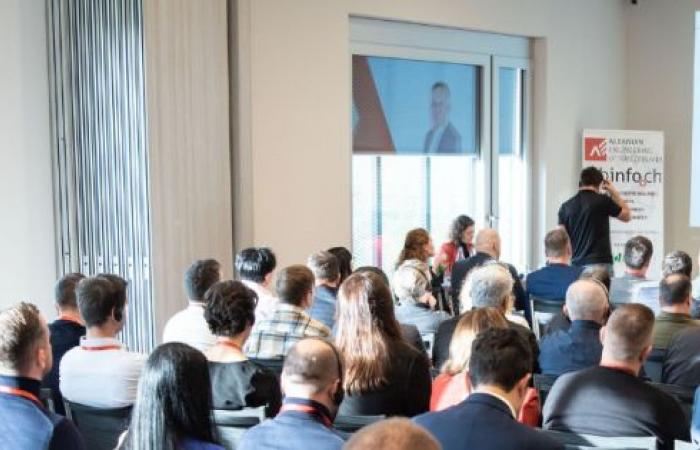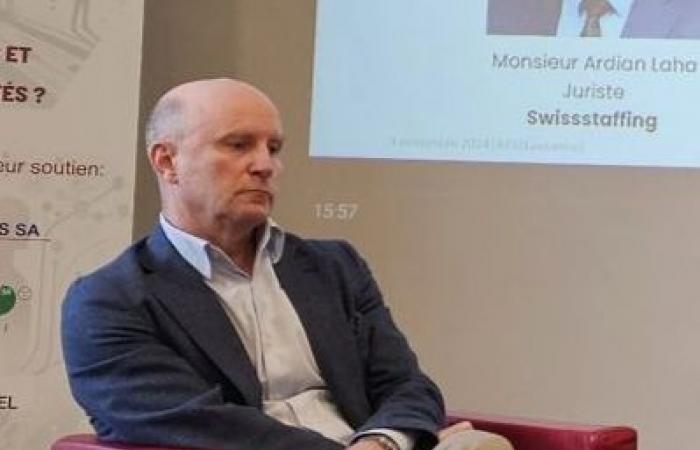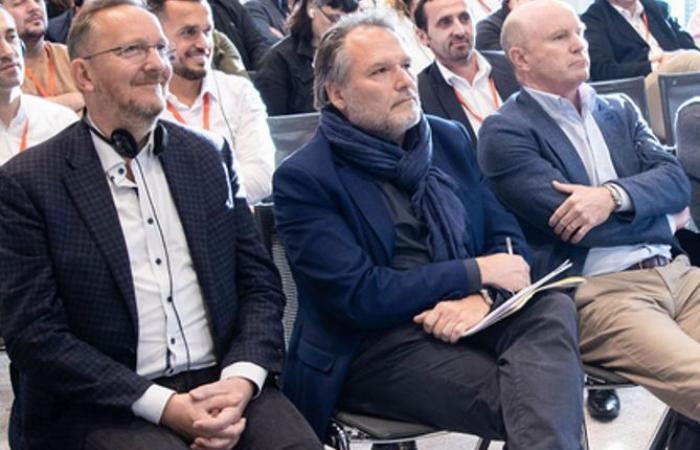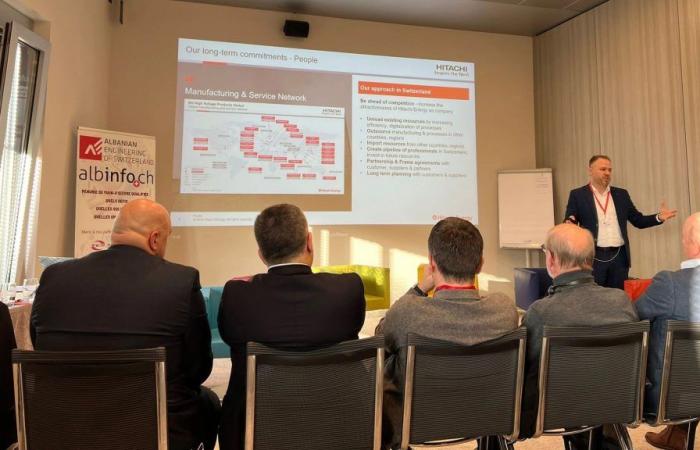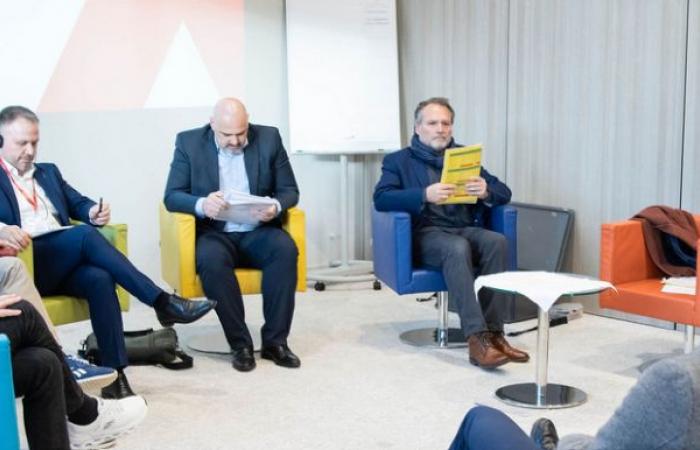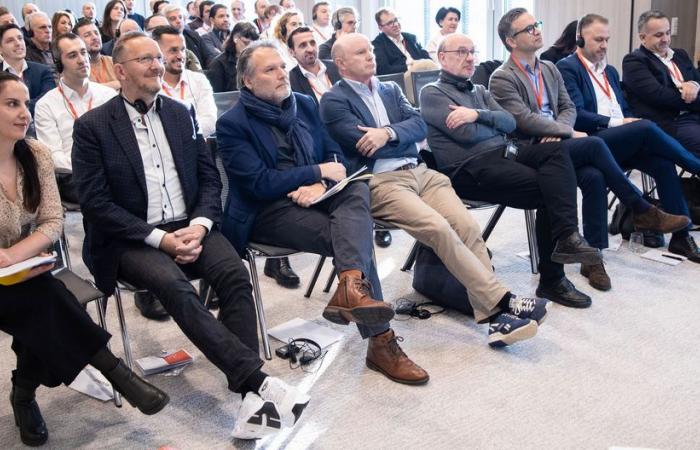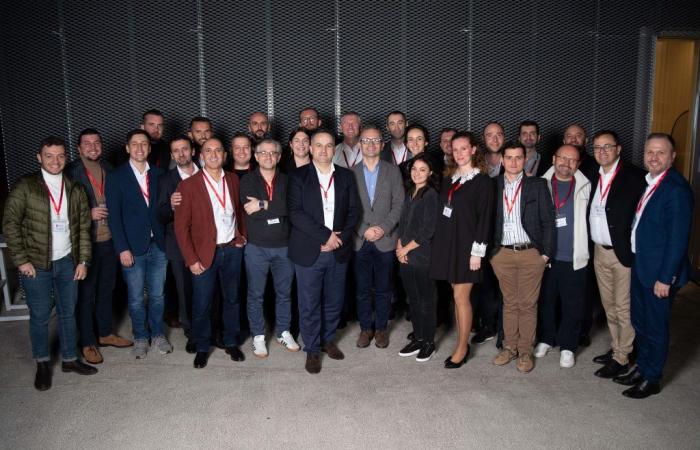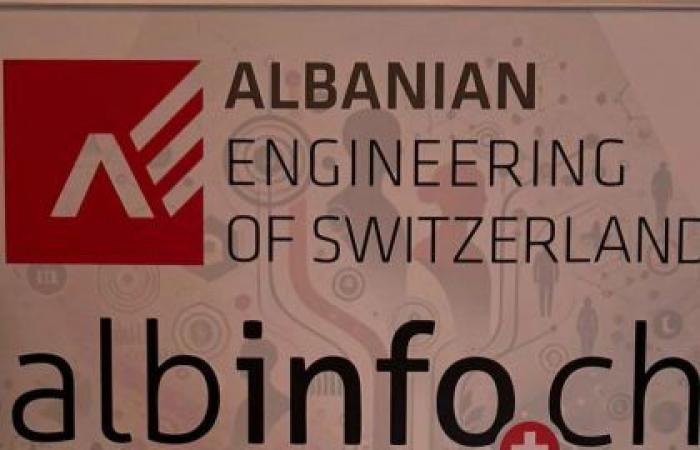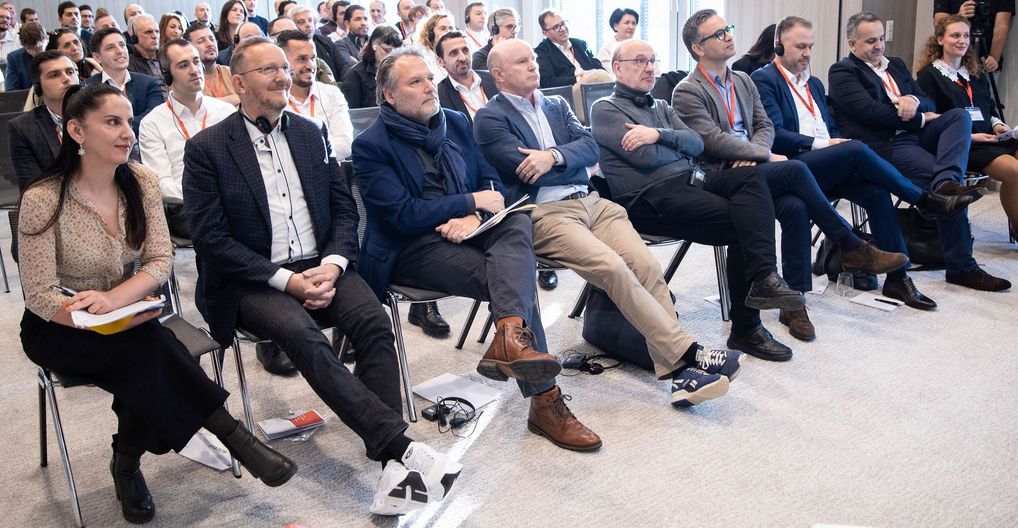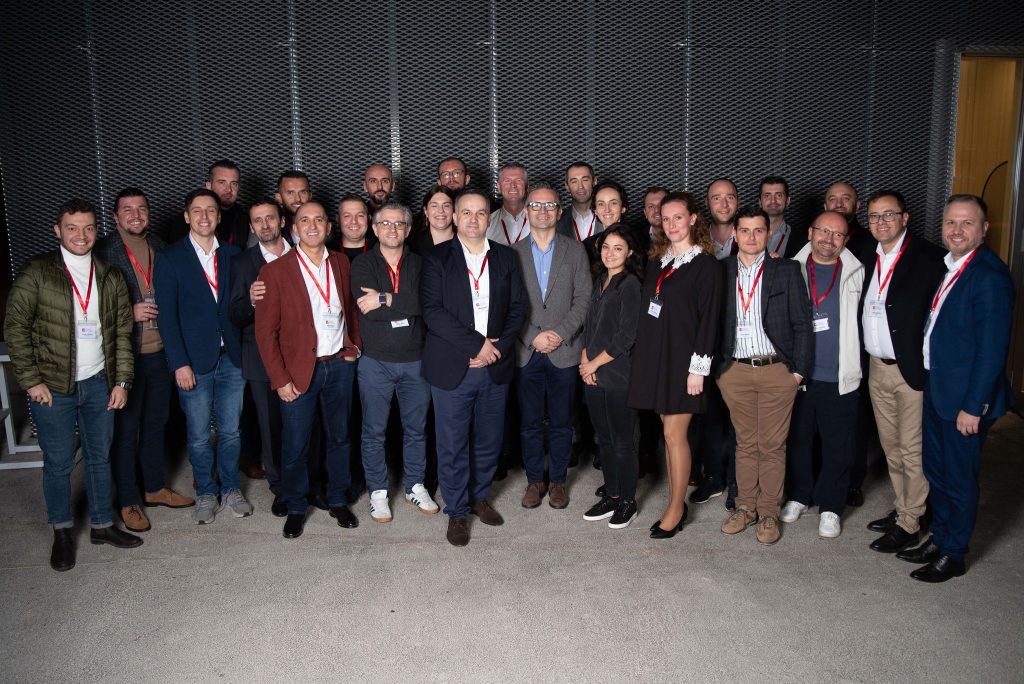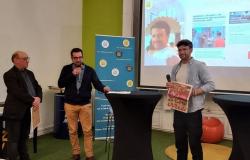Lausanne, November 9 – A round table organized by the AES (Albanian Engineering of Switzerland) and the albinfo.ch association brought together more than 85 experts to discuss the shortage of qualified talent in Switzerland. This event made it possible to draw up an alarming observation while exploring concrete avenues to transform this crisis into an opportunity.
Friday, November 15, 2024 – 9:19
Vjosa Gervalla, Director of the association albinfo.ch
Common challenges in attracting and retaining talent
@AES: Mentor Latifi, Ambassador of the Republic of Kosovo in Bern
The Ambassador of the Republic of Kosovo, Mentor Latifi, opened the debate by highlighting the challenges shared by Switzerland and his country of origin: “In different contexts, the essential question remains: how to attract and retain talent in a world in perpetual change? » An observation which has prepared the ground for interventions centered on a proactive vision, aimed at transforming this crisis into a lever for common growth.

A call for collective action: transforming challenges into opportunities

@Mentor Ilazi, President of the AES– Albanian Engineering of Switzerland
The president of the AES, Mentor Ilazi, in his welcoming remarks insisted on the scale and urgency of the problem. “This challenge affects essential sectors – healthcare, technology, engineering, construction, network electricians – and threatens our competitiveness,” he said. With a deficit of 30,000 engineers today and a forecast of 300,000 missing qualified workers by 2030, the stakes are colossal. “The AES brings together engineers and architects of Albanian origin in Switzerland to support its members, facilitate exchanges and contribute to the challenges of a sustainable society,” he concluded, calling for collective commitment. He turns to the example of Vaud, where 1,000 students follow a year of orientation to define their path. “Can we reduce this number by strengthening early support? » he suggests. He even proposes a “national Task Force”, a sort of institutional ally to coordinate initiatives and act together. His words resonated in the room, and several nods approved this idea of collective coordination.
A multi-sectoral and ethical response
The co-organizers stressed the need for an integrated response, involving sectors and nations. “This crisis requires collaboration not only between sectors, but also between countries,” they said, recalling that the shortage of qualified labor in Switzerland, particularly in health care, engineering and crafts , requires balanced responses so as not to exhaust human resources elsewhere. An ethical aspect could complete this reflection: how can we guarantee that partnerships with the Balkan countries do not accelerate the depletion of their own human resources? A reflection on a win-win balance could still be explored in future discussions.
A shortage of 300,000 to 460,000 workers by 2035
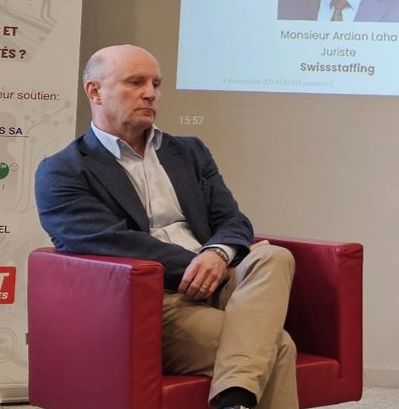
@Marco Taddei, French-speaking director of the Swiss Employers’ Union
Marco Taddei, French-speaking director of the Swiss Employers’ Union, sounded the alarm, citing worrying projections. According to him, demographic aging and the retirement of baby boomers could lead to a shortage of 300,000 to 460,000 workers by 2035, a challenge that is all the more pressing as the next generation struggles to fill this gap. To remedy this, Taddei recommends further mobilizing the indigenous workforce, integrating those over 50, women and migrants in the most affected sectors. It also calls for a more flexible immigration policy to attract foreign talent, while placing emphasis on continuing training and professional retraining in professions in shortage. “Without these adjustments, the competitiveness of our economy could be seriously compromised,” he warns, emphasizing the urgency of a coordinated political and economic response.
At the end of the conference, the Kosovo ambassador and Taddei even explored the possibilities of a potential collaboration basis to facilitate the integration of Albanian talents.
Upgrading the training system: a shared priority

@Jean-Paul Venditti, director of the French-speaking training center for network electricians (CIFER), Antoine Racciatti, human resources director of the Orllati group, Marco Taddei, French-speaking director of the Swiss Employers’ Union
Jean-Paul Venditti, director of the French-speaking training center for network electricians (CIFER), highlighted a specific but crucial problem: the lack of network electricians, these professionals essential to the management and maintenance of Swiss energy infrastructures . According to him, this profession, although technical and strategic for the energy transition, suffers from a lack of visibility and attractiveness among younger generations. “I would summarize the situation in three words: stimulation, enthusiasm and vocation. Why are there no films, series or video games that highlight our profession, while they exist for doctors or police officers? » he asked, calling for a media revaluation of technical professions. For Venditti, this is not just a human resources challenge, but a strategic issue to ensure the resilience of the country’s energy infrastructure.
A collective and innovative response for network electricians
To respond to this shortage, Venditti offers concrete and bold solutions, such as the creation of a fund dedicated to the production of media content promoting technical professions, in order to encourage vocations from a very young age. Furthermore, he insists on the importance of investing in dual training, which combines theory and practice, to adapt the skills of apprentices to the current and future needs of the market. “These professions must become synonymous with professional pride and future prospects,” he declared.
Flexibility and openness: an adapted labor market
Adrian Laha, representative of swissstaffing, presented data from his organization’s White Paper, highlighting the transformations needed to address the labor shortage in Switzerland. He highlighted that flexibility has become a key factor in attracting and retaining talent in a rapidly changing market. “Our survey of more than 1,200 workers shows that flexibility – whether in hours, location or division of tasks – is essential today,” he said. Laha also stressed the importance of offering conditions adapted to individual needs, which could encourage the reintegration of many people currently on the margins of the labor market.
However, he warned that this new flexibility comes with challenges, particularly when it comes to employee health and well-being. According to him, it is imperative to adapt the legal framework to protect workers in this context of change. “Companies must adjust to the expectations of new generations and offer more flexible working environments, but they cannot do this without adequate legislative support,” he added. This approach, according to Laha, represents one of the opportunities not only to resolve the current shortage, but also to reinvent the Swiss job market by making it more inclusive and sustainable.
The dual responsibility of the Albanian diaspora
@Arben Shabani, CEO of Hitachi Energy and member of AES
Arben Shabani, senior executive at Hitachi Energy and member of the AES, provided unique insight into the shortage of qualified labor in Switzerland, emphasizing the crucial role of the Albanian diaspora in this issue. “As a diaspora, we have a dual responsibility: to contribute to the development of the country where we live while supporting the country from which we come,” he said. Shabani stressed that apprenticeship, the cornerstone of the Swiss education system, is “the royal road” to integrating and training talents, and highlighted the importance of partnerships between companies and educational institutions to guarantee a constant pipeline of qualified professionals.
An international and local strategy to respond to the shortage.
Arben Shabani also detailed Hitachi Energy’s initiatives to address the labor shortage. The company is banking on a combination of solutions: outsourcing certain functions to operational centers abroad, such as in India or the Czech Republic, while investing locally in training programs with Swiss educational partners such as LIBS (Industrielle Berufslehren Switzerland). “These approaches not only optimize resources, but also ensure better long-term planning, in collaboration with our customers and suppliers,” he said.
A comprehensive strategy for the future of the construction sector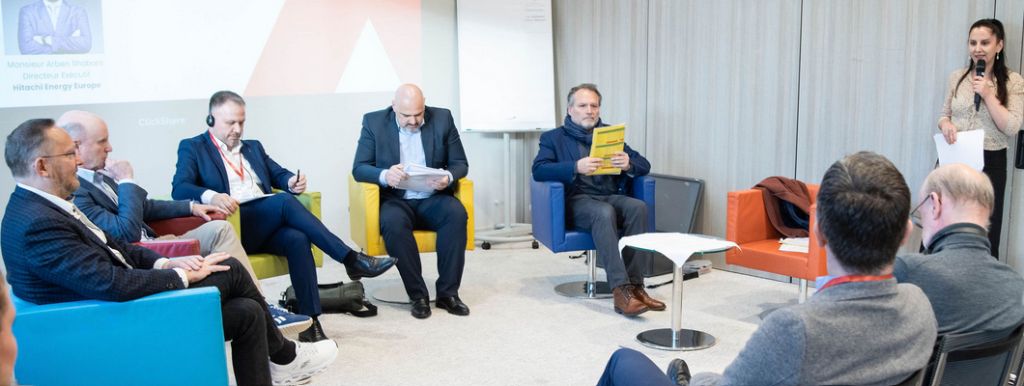
In the construction sector, often on the front line facing labor shortages, Antoine Racciatti, human resources director of the Orllati group, calls for a collective and coordinated approach. The Orllati group has also set up a training scholarship system in Kosovo, illustrating its concrete commitment to the development of local skills and the creation of international synergies. “Every company thinks according to its own needs, but the key is a common vision,” he said. For him, this crisis goes beyond the individual interests of companies and requires global thinking involving the private and public sectors.
The fragmentation of efforts, where each actor acts in isolation, risks compromising initiatives that are essential to maintaining the competitiveness of the sector. It highlights the idea of a strengthened dialogue between market players and political decision-makers to establish cross-cutting measures capable of sustainably responding to the shortage.
Combining local and international talents: a balanced vision for the construction sector
All the panelists insisted on the need to combine local development and the contribution of foreign talent. Although the training of young people in Switzerland remains crucial, it is not enough. They underlined the importance of simplifying administrative processes and improving reception conditions for foreign talents, while upgrading the construction professions through targeted efforts: better working conditions, modernization of training and communication infrastructures. reinforced.
Strengthening Swiss-Balkan ties for win-win cooperation
The AES and the albinfo.ch association are committed to strengthening links between Switzerland and the Balkans, in a “win-win” logic. By mobilizing the network of Albanian experts, they aim for sustainable and equitable cooperation, capable of inspiring international collaborations to meet the challenges of the job market.
@Albanian Engineering of Switzerland (AES)




